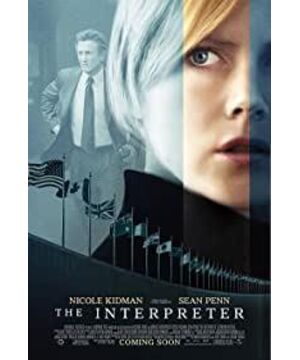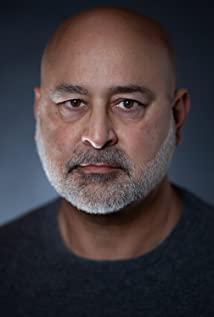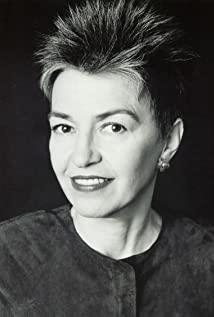Sylvia Buren (Nicole Kidman), a United Nations interpreter born in Africa, one day overheard someone using Africa that only a few people, including Sylvia, understand. In native language, discuss an assassination conspiracy. The target of the assassination is an African head of state who will speak at the UN General Assembly. When she heard about this amazing secret, she soon discovered that she had also become the target of the killer, so she reported the case to the relevant unit, and the US Secret Service assigned Agent Tobin Keller (Western En Penn) is responsible for protecting Sylvia Buren’s safety. However, during the investigation, he discovered that the witness Sylvia he was protecting had a mysterious and complicated background, and he also began to suspect that she did not fully tell the truth, and that she was probably also involved in the assassination conspiracy. Therefore, his distrust of her grew stronger. Is Sylvia a victim or a suspect? Or she has something else? And can Tobin protect her safety while dealing with problems in her private life? Although they must cooperate with each other, the personalities and backgrounds of these two individuals are completely opposite. Sylvia is a UN interpreter. She believes in the power of language and ideas; Tobin is a pragmatic Secret Service agent. He judges a person based solely on a person’s behavior. I believe he can expose the lies of the other party with keen intuition. When this treacherous and changeable political assassination is approaching and Sivia’s personal safety is also threatened, they must work together to find out the truth and stop a terrible international A political crisis occurred.
The United Nations interpreter Sylvia Buren played by Nicole in the film is actually an idealized representative, a model of kindly solving the problem of violence, especially when Sylvia used a gun at the one who killed herself When the family’s African head of state, she did not shoot but said something in return for morals, which finally made the murderer repent and accept the due trial. Of course, this method is what we all want to see most and also willing to do. It can be adopted by everyone who hates it, but this is a bit too idealistic.
First of all, repaying grievances by virtue is a spiritual realm based on morality. It is difficult for us to expect that everyone, especially those who have suffered violence, can understand and recognize it. The Kurdish spirit of repaying grievances with virtue brings out the core problem of the film. In the face of hatred, Sylvia used forgetting to cover her wounds without mentioning the deceased's name to speed up the forgetting, hoping to get out of grief through forgiveness. It can be seen that Sylvia is a model that conforms to the typical Western aesthetic concept. She is well-educated and has a strong ability to think about problems. Most of her attitude towards hatred comes from the humanistic thinking of Western developed countries. Therefore, it is understandable for such a person to have the mentality of repaying grievances with virtue, but if a person born in Palestine or a troubled country in Africa has no education and faces vendettas and violence all day long, would he have such noble thoughts? ? Is there a soil for noble ideas under such conditions?
Secondly, the results of repaying grievances with virtue are not all good, and the result of seeking skin with tigers is likely to become Mr. Dong Guo. After the movie's most intense climax, the narration explained the final fate of the conspiracy makers in the film. "In a certain year, certain month, and certain day, he was finally sanctioned for crimes against humanity in the International Court of Justice." I even think whether this film should be classified as a dry theme: Look, the people who killed the people finally escaped. But sanctions. Yes, we very much hope for such a result, but can't all of them be achieved? Also, can the people of those countries live happily after these people are disposed of? Obviously, reality is not our fantasy. Although there is no final result of the sentencing of Saddam Hussein, it is basically a foregone conclusion. However, the various wars, violence, and vendettas in Iraq are still overcast. Isn't this reality enough to cause us? Thinking about it?
Thirdly, the excessive exaggeration of the grievances with virtue also shows the film's obvious lack of political expression and the limitations of the "white perspective". This is also the film's biggest flaw. Although I chose a world "political center" like the United Nations as the filming location. From the loss of a loved one by a white woman who grew up in an African country, to flog anti-human massacres and conspiracies, and to reflect the theme of peacefully stopping violence, everything sounds like an international relations education class for American middle school students. Does such a simple treatment play down the ugly history and human nature hidden behind the real suffering of the black people and the chaotic reality? Can this "white perspective" resonate with people in this forgotten corner of Africa or a country in turmoil? Or will the merits be fulfilled just by being recognized by the audience with the same "white perspective"? If so, how representative is this kind of grievance against racial, religious, and political violence?
Perhaps as a commercial thriller genre, it is not necessary to be critical of the theme, but the vigorous Oscar lineup cannot but let me comment on the deviation of the theme, and the political theme of the film is also caused by the political difficulty of deepening. The deviation in the credibility of the plot.
It’s true that violence is something we don’t want to see, and peace is what we all hope for, but we can’t expect everyone to think that way. Violent incidents reported on TV and newspapers abound every day, just like that. , Some contradictions have been complaining for a long time, and it is no longer possible to judge the right from wrong, such as the Middle East issue and the vendetta in some African countries. We should call for and hope for peace, and treat people who have differences with kindness. But in this process, kindness alone is not enough. What is more important is to establish an order or not only to have moral requirements such as repaying with morals. , And more importantly, Tobin played by Sean Penn's method of using violence to control violence and using guns to maintain peace. After all, it is unrealistic to rely solely on beautiful ideals without strong guarantees, and it is not easy to succeed. Dancing with wolves unsuspectingly is very dangerous, the most likely is to be eaten by wolves.
===============
My BLOG http://baibo.blog.sohu.com
View more about The Interpreter reviews











